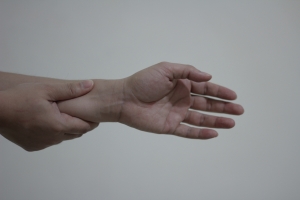L & L Enterprises v. Arellano, an appeal from the Supreme Court of Wyoming, involved claimant who was injured on the job. After submitting a workers’ compensation claim, it was determined he was an undocumented worker and, trial court ruled, not entitled to benefits. His application for workers’ compensation was denied and he appealed this decision.
 On appeal, the court looked at the issue of whether he qualified as an employee under the state statute for the purposes of workers’ compensation eligibility. It should be noted in the Commonwealth of Massachusetts, as our Boston workers’ compensation attorneys can explain, being an undocumented worker is not a bar to receiving an award an award for workers’ compensation benefits.
On appeal, the court looked at the issue of whether he qualified as an employee under the state statute for the purposes of workers’ compensation eligibility. It should be noted in the Commonwealth of Massachusetts, as our Boston workers’ compensation attorneys can explain, being an undocumented worker is not a bar to receiving an award an award for workers’ compensation benefits.
The Massachusetts case involved a construction laborer who was severely injured when he fell into a deep hole while on the job. He was an undocumented worker. When his employer denied his application for workers’ compensation benefits, he filed a claim with the Massachusetts Department of Industrial Accidents (DIA). An administrative law judge determined injured worker was eligible for workers’ compensation, despite his immigration status, and awarded his benefits, including back pay.
Employer appealed, based upon a 2002 U.S. Supreme Court case holding undocumented workers were not entitled to workers’ compensation benefits. DIA reaffirmed its earlier decision, citing U.S. Supreme Court did not preclude a Massachusetts agency from concluding employer and employee had entered into an enforceable contract, which upon an on-the-job injury, required payment of workers’ compensation benefits.
Continue reading
 Massachusetts Workers Compensation Lawyers Blog
Massachusetts Workers Compensation Lawyers Blog









 One resident interviewed couldn’t believe what happened as she had just spoken with decedent prior to the tragic work-related fall accident. Another resident said they were headed to the lobby to leave the building and saw chaos as the building was filled with police and rescue workers and the elevator shaft was locked open.
One resident interviewed couldn’t believe what happened as she had just spoken with decedent prior to the tragic work-related fall accident. Another resident said they were headed to the lobby to leave the building and saw chaos as the building was filled with police and rescue workers and the elevator shaft was locked open. The stage was located outside of University of Phoenix Stadium, and was being built to host the NFL Tailgate Party. The victim was a rigger, which is an employee hired to move large object high above street level.
The stage was located outside of University of Phoenix Stadium, and was being built to host the NFL Tailgate Party. The victim was a rigger, which is an employee hired to move large object high above street level. First it is important to understand what it is like for someone who suffers from carpal tunnel syndrome. A CTS victim, whether an office worker, retail employee, or trade worker, spends most of their day trying to ignore the tingling and numbness in their hands and wrist. This can become extremely painful and made worse by repetitive movements a worker is required to make throughout the workday.
First it is important to understand what it is like for someone who suffers from carpal tunnel syndrome. A CTS victim, whether an office worker, retail employee, or trade worker, spends most of their day trying to ignore the tingling and numbness in their hands and wrist. This can become extremely painful and made worse by repetitive movements a worker is required to make throughout the workday. In 2012, she filed a claim before the workers’ compensation commission requesting insurance company be found liable for claimant’s medical expenses. The following year, insurance company agreed to liability and entered into a settlement agreement to pay for medical expenses.
In 2012, she filed a claim before the workers’ compensation commission requesting insurance company be found liable for claimant’s medical expenses. The following year, insurance company agreed to liability and entered into a settlement agreement to pay for medical expenses.